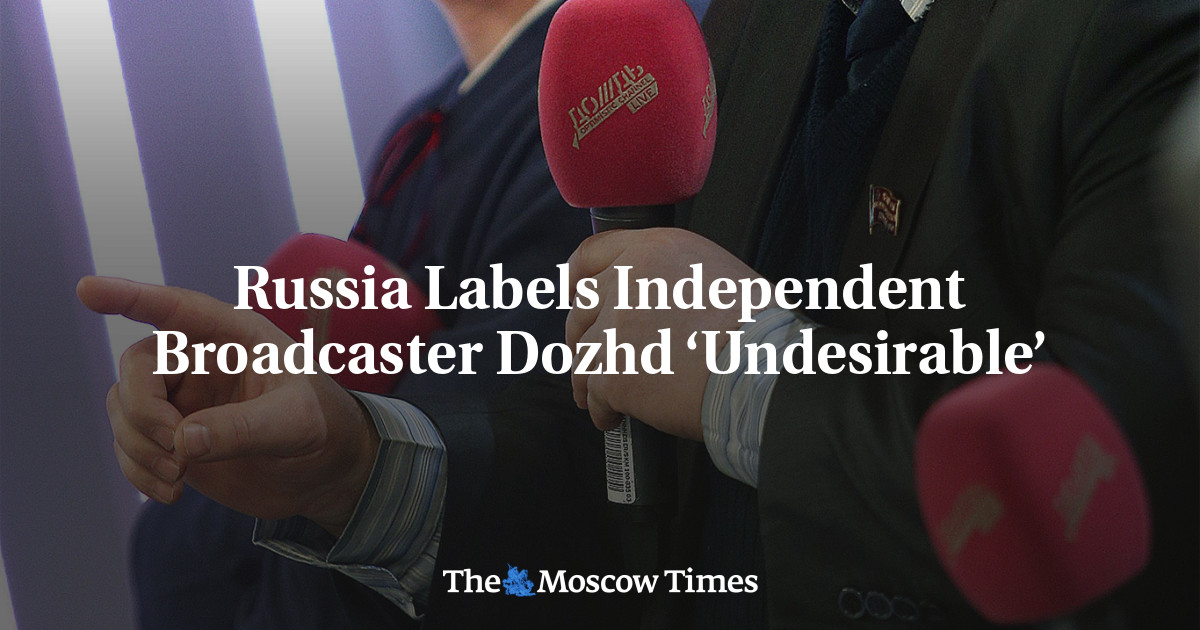
Russian authorities on Tuesday designated the exiled independent news channel Dozdh as an “undesirable” organization.
The designation bans Dozhd’s work in Russia, puts staff members at risk of jail time and criminalizes engagement with the broadcaster, including sharing its content online.
Russia’s Prosecutor General’s Office said in a statement that Dozhd “systematically” violated the country’s media laws and employed individuals labeled in Russia as “foreign agents.”
The Prosecutor’s Office also accused Dozhd of distributing content of other banned organizations — such as jailed Kremlin critic Alexei Navalny’s “extremist” political network and the “undesirable”-branded Meduza news website, as well as the terrorist organization Hizb ut-Tahrir.
“These organizations discredit Russian state authorities and law enforcement agencies [and] disseminate false information about the special military operation,” the Prosecutor General’s Office said, using the Kremlin’s preferred term for the invasion of Ukraine.
Following the announcement, Dozhd said it had taken measures to safeguard Russia-based viewers from criminal prosecution, including canceling existing subscriptions and disabling donations from inside Russia. It also advised against sharing its content.
“If you live in Russia, it’s now unsafe,” the broadcaster said in a statement, adding that it was working on determining the next legal steps in response to its blacklisting in Russia.
Russian officials who spoke to The Moscow Times on condition of anonymity said Tuesday’s decision to label Dozhd as an “undesirable” organization should have been made “much earlier.”
“They [Dozhd journalists] have already said 10 times more than Igor Girkin,” explained one government official, referring to the pro-war Russian nationalist who was arrested last week on extremism charges.
“[Putin] has had enough of them,” the official told The Moscow Times.
The official noted that information security is now being handled with utmost care as Russia’s regional elections in September are just a month and a half away, while the presidential election is scheduled for next year. As a result, the authorities are taking a harder line toward media outlets critical of the Kremlin and its decision to invade Ukraine.
“This is being done to make it even more difficult for the media, which allow themselves too much leeway in their work,” said another official, who also asked not to be named.
Dozhd moved from Russia to Latvia and Georgia in July 2022 after being forced to shut its Moscow studio in the wake of Russia’s invasion of Ukraine.
Dutch media authorities issued Dozhd a five-year broadcasting license in December 2022, after Latvia branded the channel a threat to national security and canceled its broadcasting permit.
The outlet opened a broadcasting studio in the Dutch capital of Amsterdam in the fall.
Russia has used its law on “undesirable” organizations to target independent news outlets, human rights groups, environmental organizations and educational institutions.
The “undesirable” list was originally introduced in 2015 to crack down on foreign NGOs and ban Russians from collaborating with or donating to them.